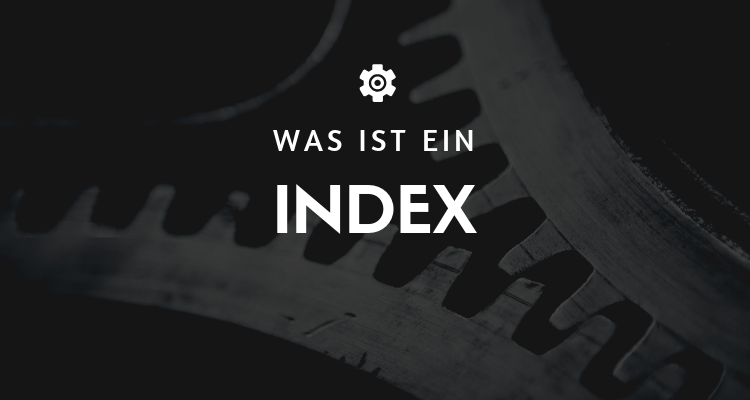
What is an index?
The (search engine) Index is the place where all the data that a Search Engine (Google, Bing, Yahoo, etc.) has collected are stored. It is the search engine index that provides the results for the search queries. Thus, the search engine indexing is the process of a Search Engineto collect, analyze and store the data collected from the Search Engine be used.
Without such a search engine index, search engines would have to search every website and database for every search query. But to ensure that the information is delivered completely, a search only for the keywords would not be sufficient. Each time, every database would have to be searched to which the Search Engine has access. It is obvious that this procedure cannot be practicable. Therefore, search engines use so-called searchengine spiders (also called crawlers).
Crawlers, scan every website on the web at specific intervals for information, which is then stored in the search engine index.
A search engine index consists of many different parts, such as design factors and data structures. The design factors of a search engine index shape the structure of its structure and thus dictate how the Index works. The individual components are combined to achieve the ultimate Index to create.
The components include, for example:
- Merge factors that decide how information is merged into the Index and whether the data is new or needs to be updated.
- The index size, which refers to the amount of possible computing space required to support the index.
- Storage techniques that decide how the information should be stored. For example, larger files are compressed, while smaller files are simply filtered.
How does Google index pages?
The Google algorithm can be considered as a kind of giant bookworm that ceaselessly searches for new and interesting books (web pages) to add to its vast library (the search index). In order to achieve this, the algorithm goes through a multi-stage process consisting of Crawling, indexing and Ranking exists.
- Crawling: Imagine the Crawling how the puncturebern the shelves of a library to discover new books. Google uses so-called crawlers or bots (e.g. Googlebot) that browse the Internet and follow links from one page to another. In the process, they collect information about each web page they come across.
- Indexing: After the crawlers have found a web page, the collected information is sent to the Google-Index sent. Here you can imagine that each book (web page) gets an entry in the library catalog so that users can easily find it later. The Index is a huge database where Google stores all the information about the web pages, including texts, images, videos and other content.
- Ranking: As soon as a web page in the Index was recorded, the Ranking comes into play. This is the process by which Google decides which pages will best help users with a particular search query. Think of a librarian recommending the best books on a particular topic. Google's algorithm evaluates each page based on hundreds of ranking factors, such as keywords, Backlinks, user experience, and so on. It then ranks the pages according to their Relevance and quality.
To illustrate the process, let's say you run a website about vegan recipes. If Googlebot comes across your page while browsing the Internet, it collects information about your content and sends it to the Google-Index. Dort wird Ihre Seite katalogisiert und den relevanten Themen zugeordnet, wie z. B. „vegane Rezepte“, „pflanzliche Ernährung“ usw. Wenn Nutzer nach diesen Themen suchen, bewertet der Google-Algorithmus Ihre Seite im Vergleich zu anderen Seiten und zeigt sie in den Suchergebnissen entsprechend ihrer Qualität und Relevance an.
To ensure that your website is effectively crawled by Google, indexed and ranked, you should create high-quality content, optimize your site for search engines (SEO) and pay attention to a good user experience.
What happens if a page is not indexed?
If your website or a single page is not indexed, the culprit is usually either the meta robot tag used on a page or the improper use of disallow in the robots.txt file.
Both the meta tag, which is at the page level, and the robots.txt file instruct search engine crawlers how to handle content on your website.
The difference is that the robots meta tag appears on a single page, while the robots.txt file contains instructions for the entire website. In the robots.txt file, however, you can add pages or Directories and determine how the crawlers should treat these areas during indexing.
« Back to Glossary Index
